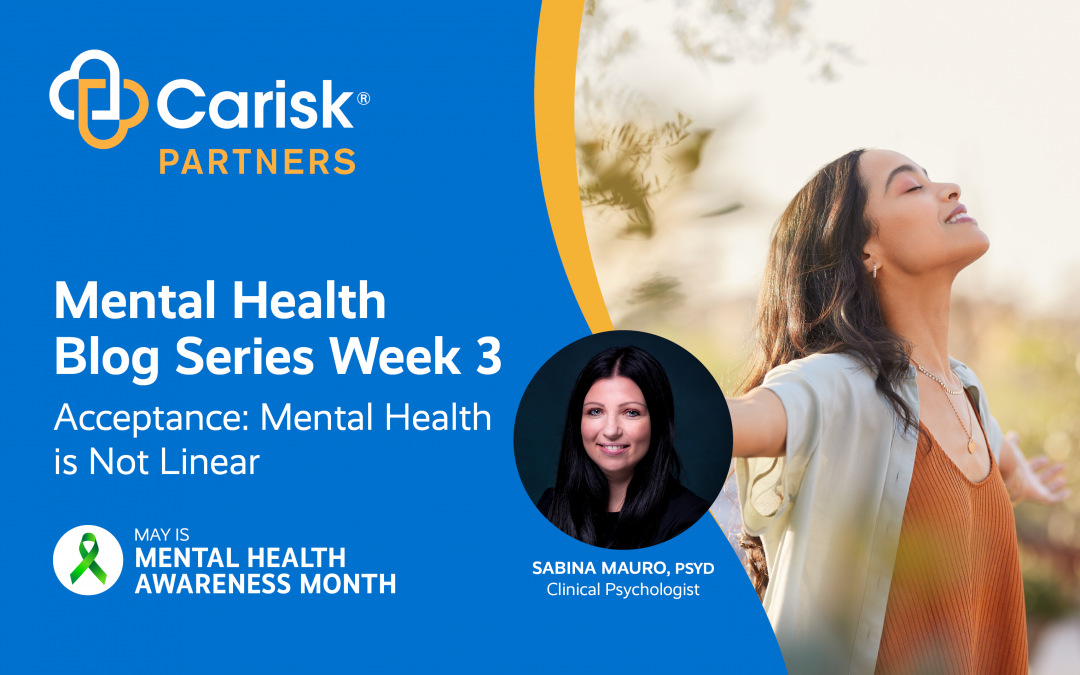Mental Health Awareness Month | Week 3 Blog by Dr. Sabina Mauro
Societally, mental health has been synonymous with mental illness. The negative connotations, misconceptions, stigmas, and general lack in understanding have become even more pronounced in ever connected modern society. Once we, as a society, understand the positive aspects of mental wellness we will be better prepared to accept mental health for what it is and work towards improved resilience, perspective, and overall quality of life.
We must bemindful of how we use mental health term. Because these terms have been predominantly used to describe weakness, illness, or the idea that something wrong with us, the stigma of inadequacies is perpetuated. Mental wellness, which encompasses the ideas of thriving, living full and enriched lives and allow us to flourish, is a part of mental health. When we use appropriate mental health terms to describe positive day to day experiences, moods, and behaviors, we move towards an understanding of the broad spectrum of what mental health is and begin to embrace mental health as part of who we are.
We a are all familiar with phrases referencing mental illnesses that are casually thrown around in conversation. Contrast that to phrases for mental wellness are as easily thrown into conversation. Unfortunately, mental wellness phrases in conversation are not nearly as abundantly available as mental illness phrases, which make it even harder change how we use mental health terms.
Here are some tips for changing the language we use to describe daily experiences:
- First, we need to stop using phrases like “I’m having a mental crisis,” “this is/was traumatic” or “he’s suicidal.” These are medical terms that are used by mental health professionals and should not be used to describe day-to-day experiences. Using these terms inappropriately diminishes what someone else could be medically experiencing.
- Next, we need to focus on our own mental wellness journey. The only mental wellness journey we can understand is our own. Embrace it. Own it.
- Finally, begin to incorporate mental wellness vocabulary to describe daily experiences. Here is an introduction to phrases we can use:
- When describing a difficult experience: “This was difficult. I need to check in with myself.”
- When referring to excessive worry: “My current thoughts are not helping me and what would help is letting go of this thought.”
- When referring to an emotional state: “I am experiencing the feeling of being overwhelmed” or “this emotion will pass.”
- When referring to someone else’s mental health: “I can try to understand what they are going through.”
Recognize that the mental wellness journey is not the same for all. While mental wellness is a universal experience, we are all on different paths. Some people may have a hard time connecting with mental wellness ideas while others may already be doing the work. The focus should be on your individual mental wellness journey and how you choose to accept the changes needed.
Stay tune to learn about difference resources that are available to continuously boost our mental wellness!





